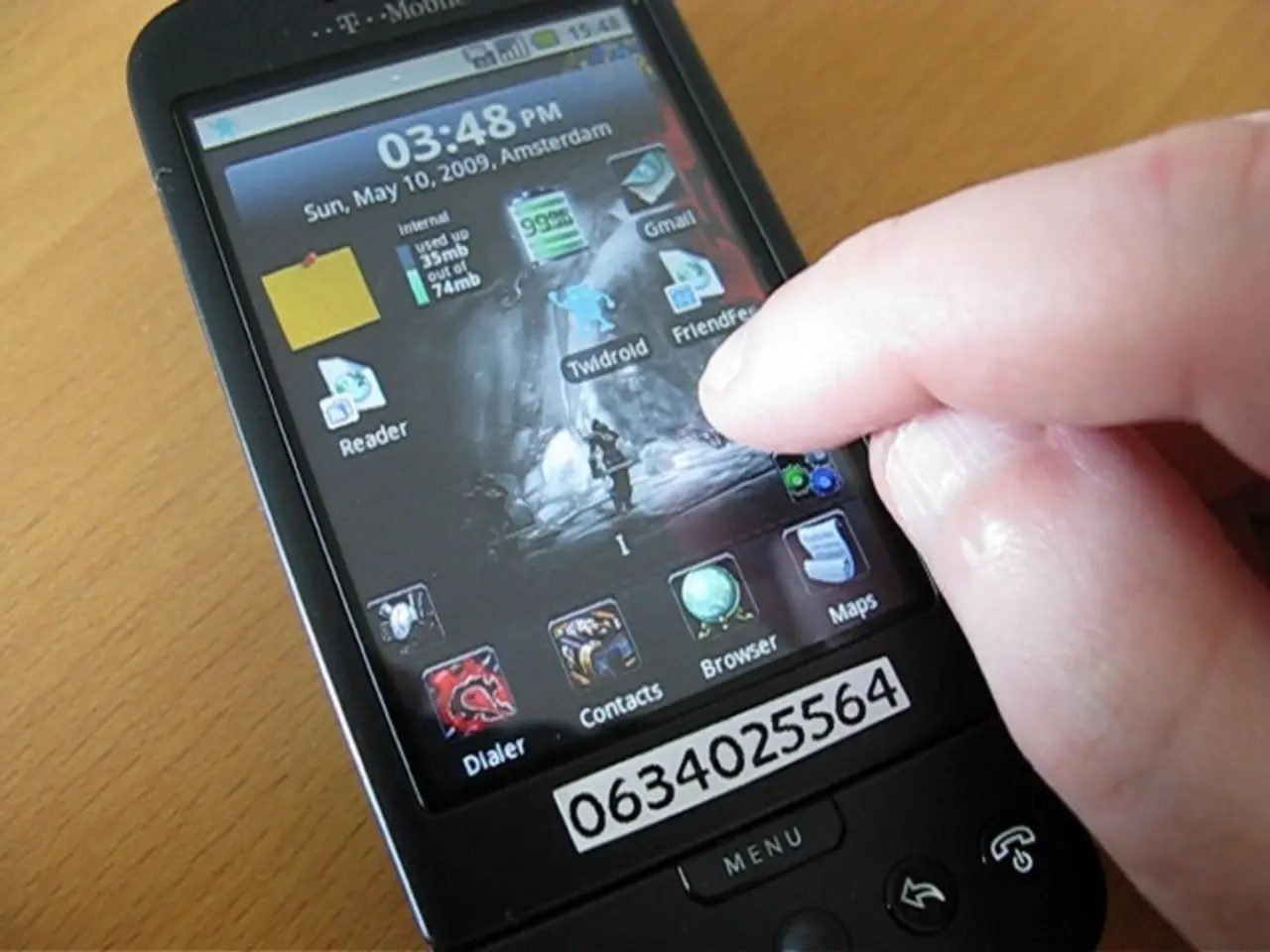Tech giants aim to simplify digital space: Google plans to streamline smartphone applications
In the ever-evolving world of technology, Google is set to unveil a groundbreaking new feature on its upcoming Pixel 10 phones. The feature, named Magic Cue, aims to simplify multi-app tasks by intelligently connecting relevant information from multiple apps and presenting it contextually when needed.
Smartphone makers have been pushing to incorporate more AI into their devices over the past two years, and Google is no exception. Magic Cue is a testament to this trend, using Google's Gemini AI models running on the Pixel 10’s Tensor G5 chip to process information in real time.
Magic Cue works by watching what’s on your screen and analyzing the context of your activities or conversations. It then pulls together helpful details like flight numbers from Gmail, photos from your gallery, calendar events, or reservation info, and surfaces them as suggestions or quick actions directly within the app you’re using. For instance, it can show your flight arrival time in a chat or display relevant info on a call screen for easy reference.
One of the key advantages of Magic Cue is its focus on privacy. Computing happens locally on the device with Magic Cue, which is generally considered more private. This means that data is processed on-device to ensure security and user control. By reducing the need to switch back and forth between different apps, Magic Cue streamlines multi-step tasks, making it easier and faster to coordinate plans or retrieve needed details.
The feature is set to revolutionise the way users interact with their phones, particularly in specific use cases like settling a restaurant tab, adding events to one’s calendar, and previewing weather forecasts for an upcoming trip. Magic Cue can even suggest actions like calling a restaurant within a text message thread asking about dinner reservations.
The launch of Magic Cue could set the stage for more dramatic alterations to how smartphones operate in the age of AI. Analysts like Carolina Milanesi, a principal analyst for research firm Creative Strategies, compare the shift to using AI to handle tasks to how the internet worked before mobile devices. Nabila Popal, a senior director with the IDC's data and analytics team, sees Google's AI features as being a step towards broader changes to the way consumers use mobile devices.
Despite Google's Pixel phones accounting for only 1% of the global smartphone market as of the second quarter of 2025, the new feature is expected to attract attention and potentially drive sales. The firm's data indicates 68% of American shoppers upgrade their phone because it needed replacing.
Google's new Pixel phones are also expected to offer improvements in battery life, camera upgrades, and compatibility with accessories like wireless chargers. The International Data Corporation (IDC), Counterpoint Research, and Canalys don't break out Google in their metrics because it has a small share in the global smartphone market. However, Josh Lowitz, an analyst with Consumer Intelligence Research Partners, states that shoppers typically upgrade their phones out of necessity rather than a desire for new features.
The future, according to Popal, may even be without apps, where the AI is the driving operating system and the user does not need to switch between apps to perform tasks. Magic Cue is a step in that direction, acting as a smart assistant that connects the dots across your apps, instantly presenting relevant contextual info and actionable suggestions to simplify complex tasks.
The feature is scheduled for launch on August 28, promising to redefine the smartphone experience for users worldwide.
Read also:
- AI Inspection Company, Zeitview, Secures $60 Million Funding for Expansion
- Future of Payments: If the U.S. regulates stablecoins through the GENIUS Act, according to Matt Hougan
- Ongoing trade friction as the American administration levies fresh import taxes on goods arriving from China
- Exciting Activities and Productive Tasks You Can Perform on Any Personal Computer








